Prevention and treatment
Leave your nails alone
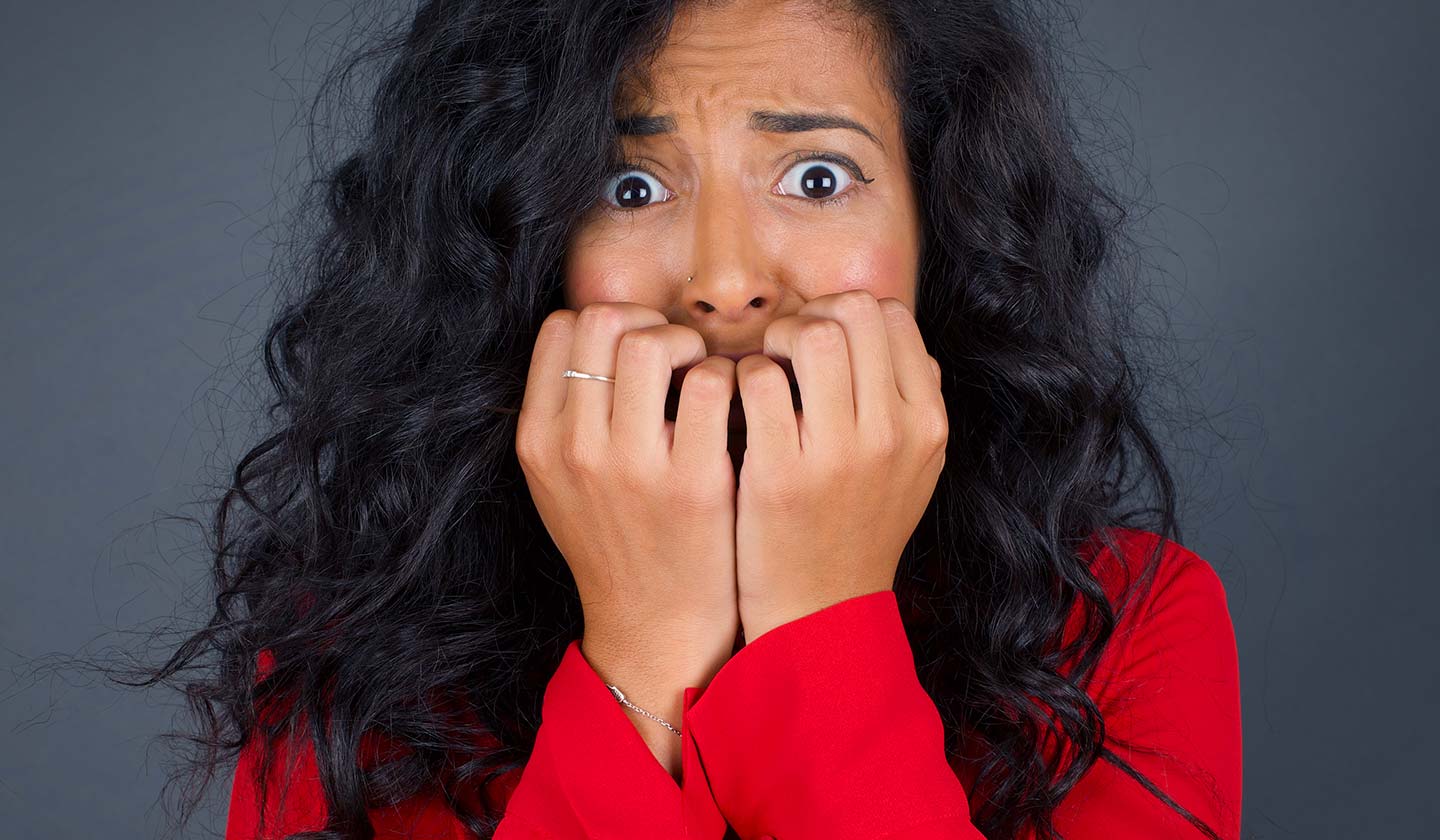
Cannot stop biting your nails? Your child can not control his/her addiction to constantly biting his nails and skin around? So read this article and find out more about this addiction that appears in both children and adults and that can cause some health problems.
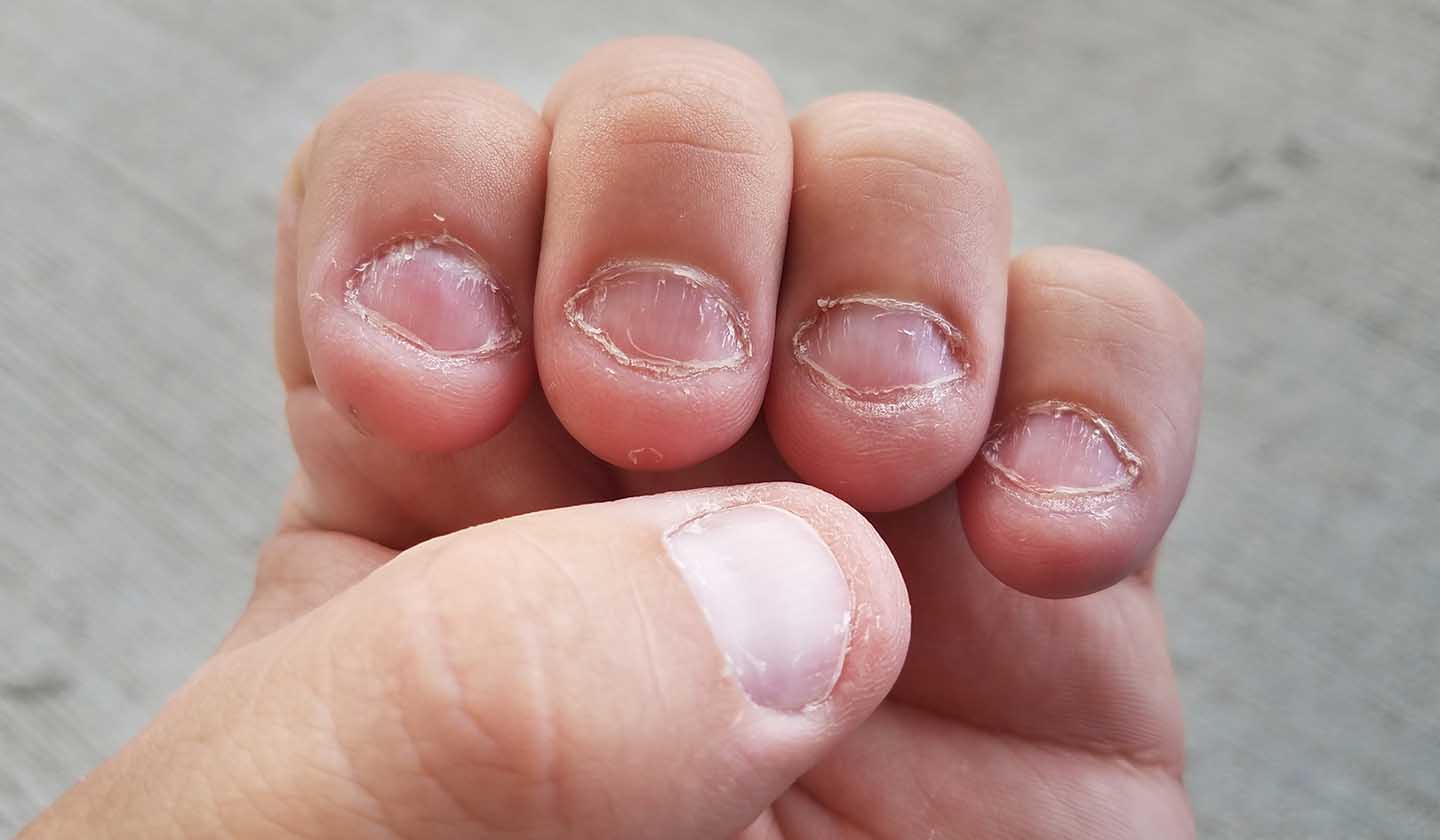
What is onychophagia? What are the causes?
Onychophagy is the compulsive act of biting or eating one's nails. It is an addiction and can appear at any age, men, or women.
It is a repetitive, compulsive, and irrational behaviour disorder of biting the nails of the hands or feet, especially during periods of anxiety, boredom, stress, hunger, which can be a sign of mental or emotional disorder, depending on the frequency and compulsion.
The gesture is automatic and often unconscious, especially when the person is involved in tasks of greater concentration and may also arise from imitation of adults’ behaviour by children.

When does it start?
It often appears in children from the age of 3 and can last through childhood and adolescence and remain in adulthood.
This disorder is quite common, affecting between 20 to 30% of the general population.
It is estimated that 28% to 33% of children between the ages of 7 and 10, and 44% of adolescents are onychophages (people who bite their nails). From the age of 18, there is a decrease in the prevalence of onychophagia.
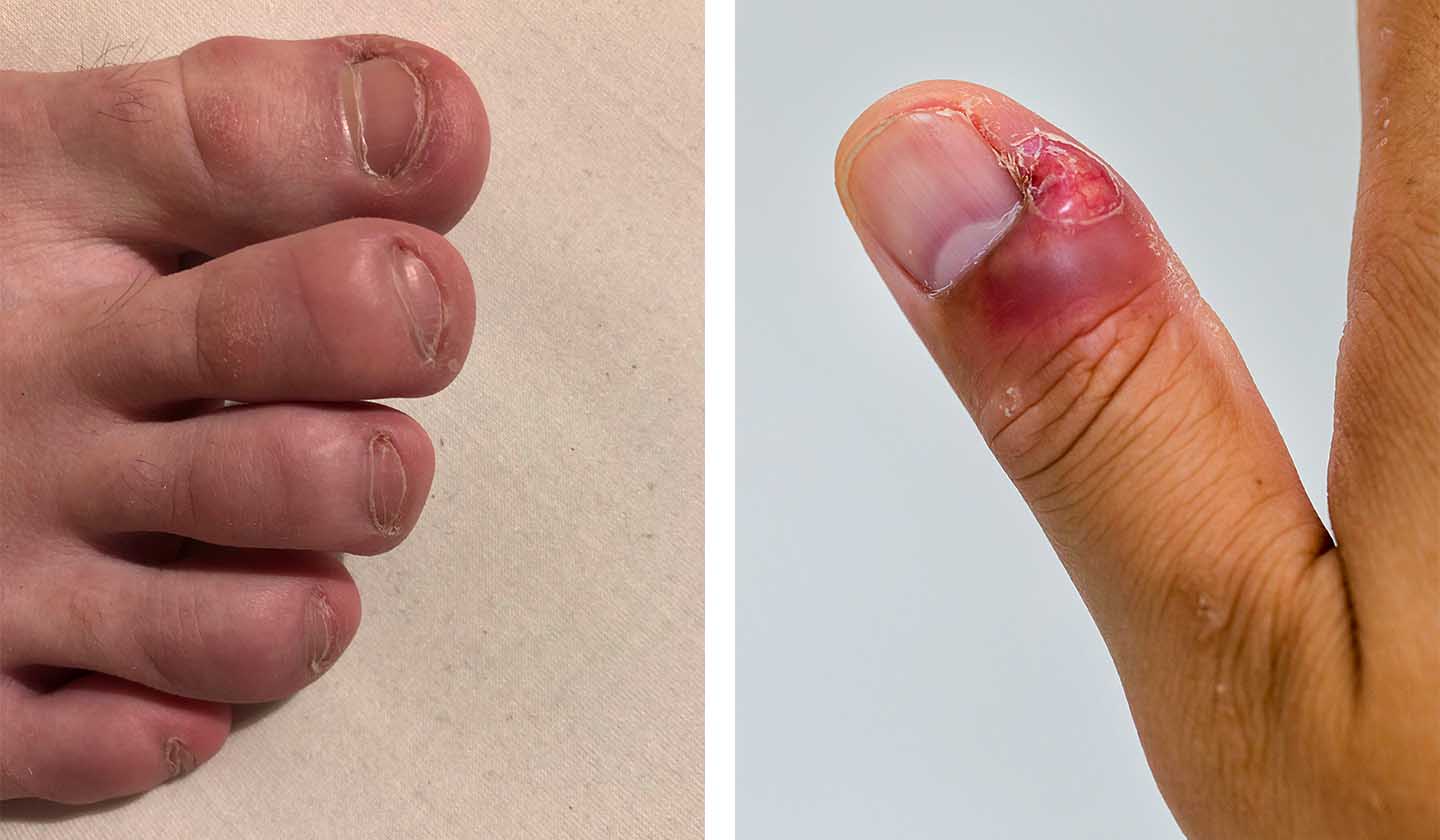
Consequences of onychophagia
The consequences are not just aesthetic. Onychophagy can destroy the nail and cause serious infections, especially when the cuticles and skin around the nail are not spared. Skin lesions caused by the biting of nails and skin are a gateway to bacteria, viruses and fungi giving rise to paronychia (bacterial infections) and mycoses and other infections (for example the herpetic whitlow transmitted from oral herpes lesions) which can be difficult to treat.
Problems in the oral cavity (gingivitis), lesions in the stomach and intestines (due to the small pieces that are swallowed), deformations in fingers, infections in the mouth and dental deformations due to wear of the tooth enamel can also appear.
These skin and nail damages can lead to anxiety and decreased self-esteem due to the embarrassment caused by the hand appearance; as a consequence, a vicious circle is created perpetuating the problem.
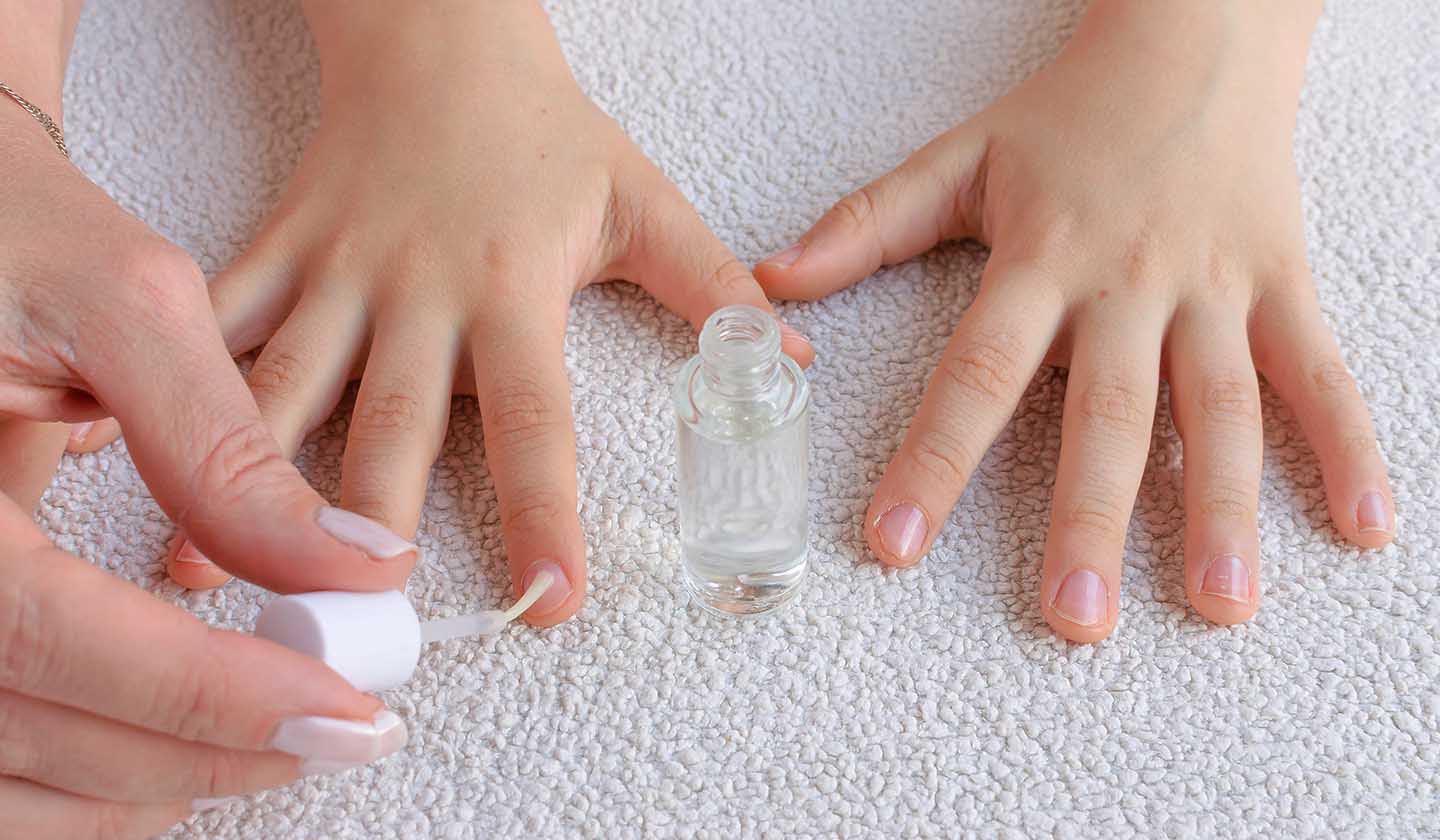
What to do?
First, try to understand why the person bites their nails and under what circumstances. Is there any problem that causes anxiety? Stress? Gesture imitation?
Some situations (depending on the frequency and compulsion of the act) may justify looking for a doctor and resorting to behavioural therapies.
In the case of children, it is important not to punish the act of nail biting so as not to cause self-esteem problems. It is preferable to provide a distraction for the child when this happens, such as activities that keep the child’s hands or mouth occupied.
There are bitter-flavoured varnishes and gels on the market that can help control the urge to bite nails. You can also use coloured dressings on fingers and, in the case of adults, acrylic or gel nails.
It is important to keep nails clean, short, and tidy and moisturising creams that soothe cuticles should be used.
In most severe situations, in which there is a psychiatric illness in the aetiology of onychophagia, medications such as antidepressants or antipsychotics may be prescribed by the doctor. Vitamin B also seems to help in some cases, as it increases brain levels of serotonin.
Behavioural therapy may also be an option which may be complemented with pharmacological therapy or not.
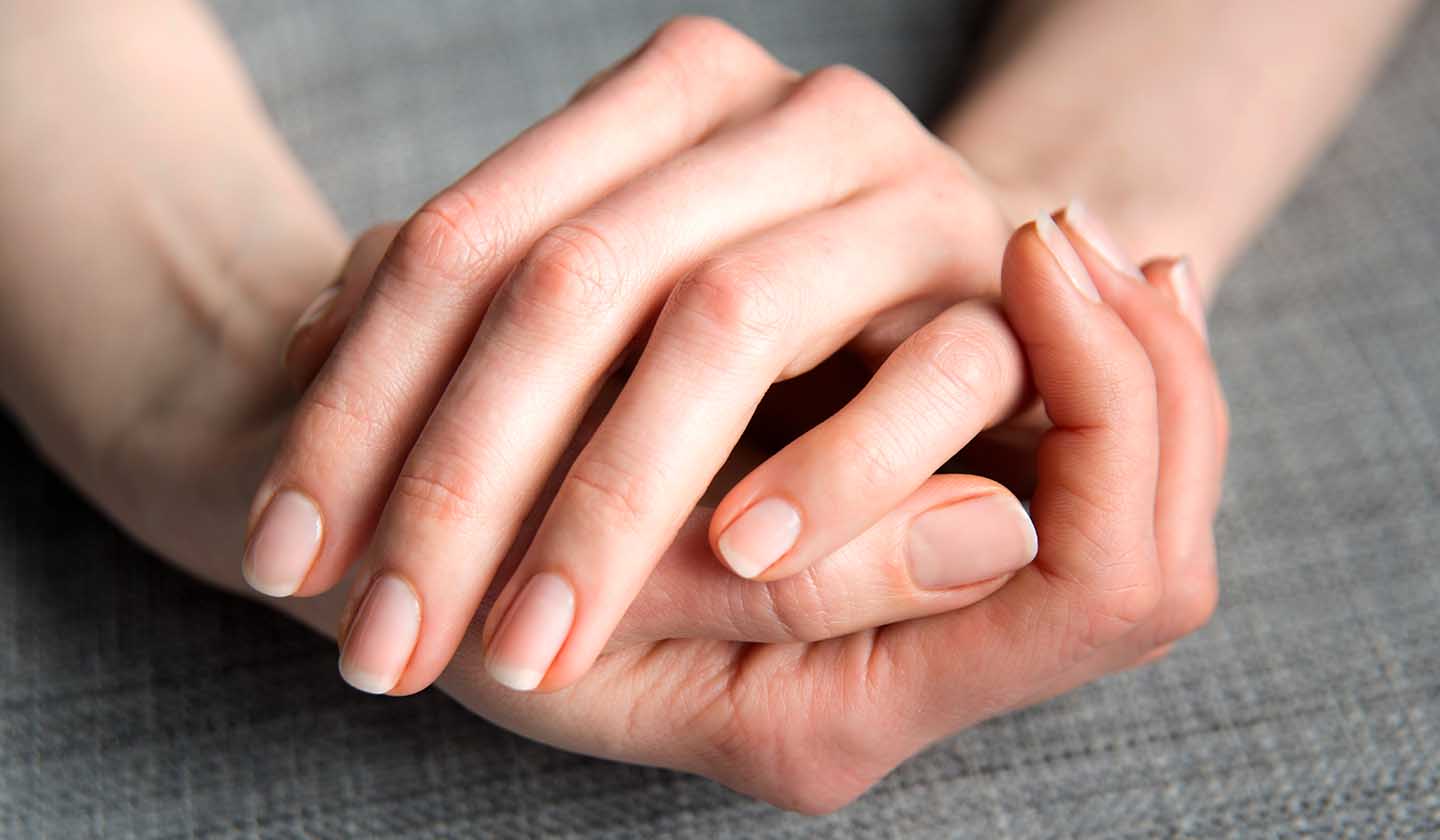
To conclude...
The management of nail-biting addiction involves reducing stress, providing emotional support, and helping motivate onychophages to abandon this habit. Motivation is the key word. Ask your pharmacist for advice.
Sources
iSaúde
Farmácia Distribuição Magazine
Também lhe poderá interessar
Fungus






